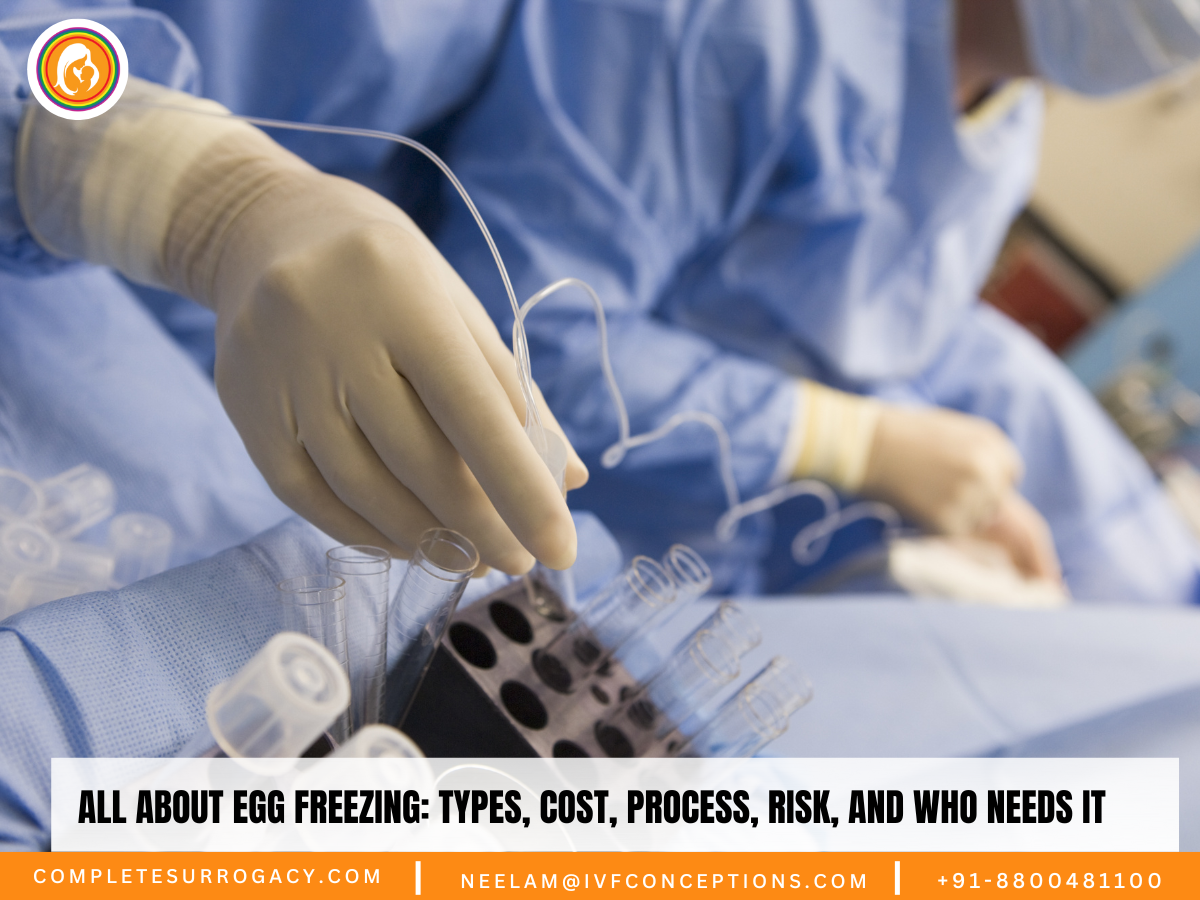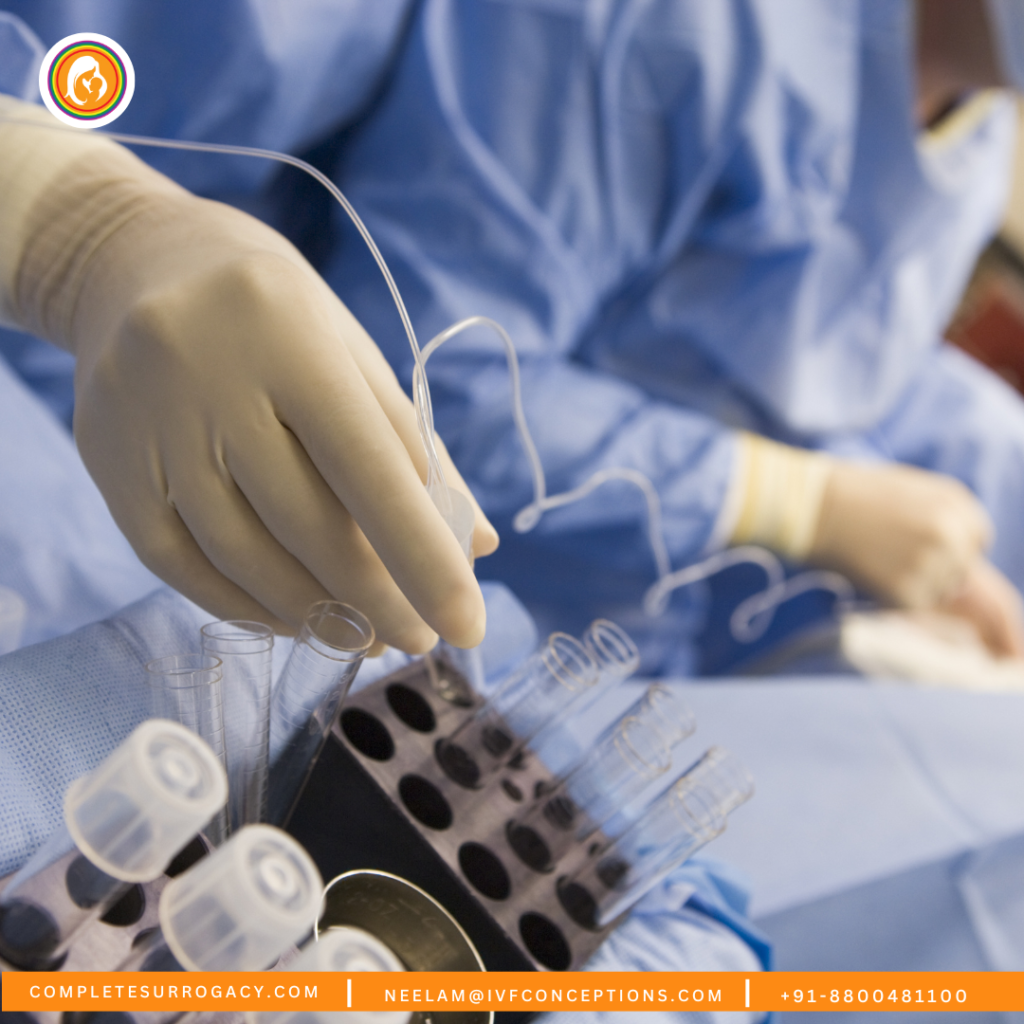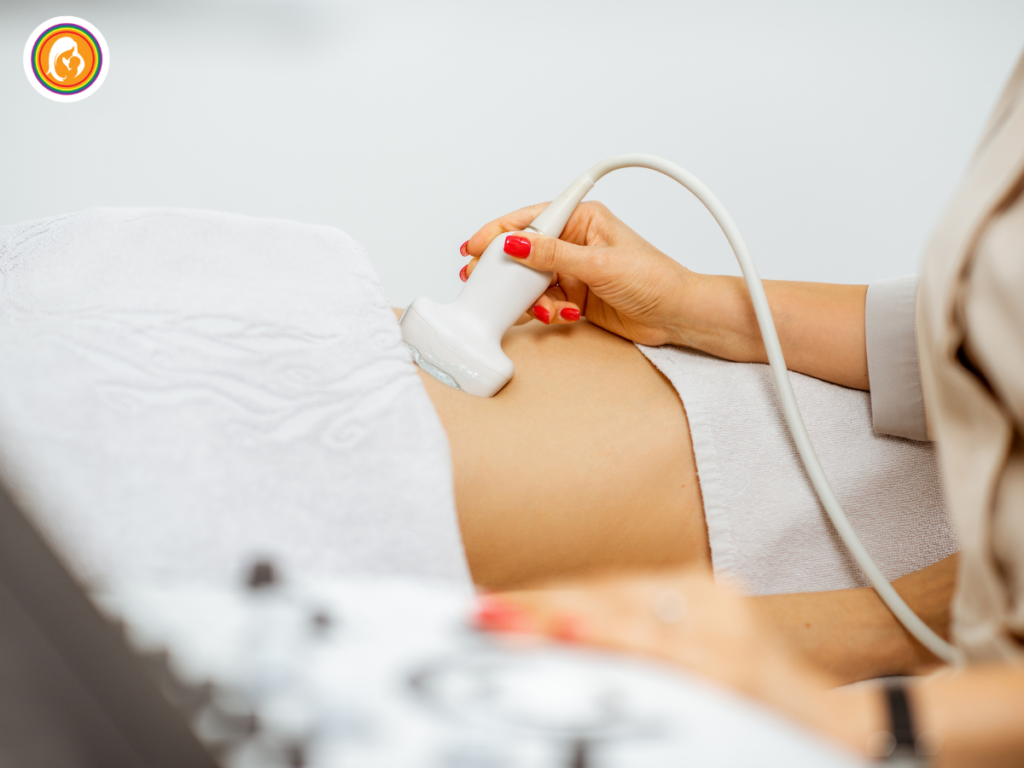All about Egg Freezing: Types, Cost, Process, Risk, and Who Needs It

Introduction to Egg Freezing
Egg freezing, also known as oocyte cryopreservation, is an advanced reproductive technology that offers women the opportunity to preserve their fertility for future use. This process involves extracting eggs from a woman’s ovaries, freezing them unfertilized, and storing them for later use. As a form of fertility preservation, egg freezing has become increasingly popular among women who wish to delay motherhood or face medical conditions that might impact their fertility.
- Book an online appointment: Get a free online consultation.
- Call\W:+91-8800481100 Email:neelam@ivfconceptions.com
All about Egg Freezing provides women with a pathway to secure their reproductive future. Whether you’re considering it for preserving fertility before chemotherapy or delaying pregnancy for personal or professional reasons, egg freezing can offer a safeguard. If you’re curious about how egg freezing works or wondering about egg freezing success rates, it’s important to consult a fertility specialist to understand the process, the timing, and the costs involved.
Key Points:
- Egg freezing is a method of fertility preservation
- It involves extracting, freezing, and storing unfertilized eggs
- The frozen eggs can be thawed and used for in vitro fertilization (IVF) in the future
More Resources to Read:
Surrogacy Guide for Surrogate Mothers
Surrogacy Guide for Intended Parents
How does the surrogacy process work
The Science Behind Egg Freezing
Understanding the biology of female fertility is crucial to appreciating the significance of egg freezing. Women are born with all the eggs they will ever have, and this finite supply diminishes over time. Moreover, the quality of eggs declines with age, increasing the risk of chromosomal abnormalities and miscarriage.
Age-related Fertility Decline:
| Age Range | Average Monthly Chance of Pregnancy |
| 20s | 25% |
| Early 30s | 20% |
| Mid 30s | 15% |
| Early 40s | 5% |
This table illustrates why egg freezing can be a valuable option for women who want to preserve their fertility while in their peak reproductive years.
Methods of Egg Freezing
There are two primary methods used for freezing eggs:
- Vitrification (Flash Freezing)
- A rapid freezing process that transforms eggs into a glass-like state
- Eggs are cooled to -196°C (-320.8°F) almost instantly
- Reduces the risk of ice crystal formation, which can damage eggs
- Higher survival rate of eggs post-thaw (approximately 90-95%)
- Slow Freezing
- A gradual cooling process that takes several hours
- Uses cryoprotectants to prevent ice crystal formation
- Lower survival rate compared to vitrification (60-70%)
- Less commonly used in modern fertility clinics
Vitrification has largely replaced slow freezing as the preferred method due to its higher success rates and better egg survival post-thaw.

Who Should Consider Freezing Eggs?
Egg freezing can be beneficial for various groups of women:
- Career-focused women: Those who want to delay motherhood to focus on professional goals
- Women without a partner: Individuals who haven’t found the right partner but want to preserve their fertility
- Medical reasons:
- Women facing cancer treatments that may affect fertility
- Those with genetic conditions that may cause premature ovarian failure
- LGBTQ+ individuals: People who may want to have biological children in the future
- Women with endometriosis: To preserve fertility before the condition potentially impacts egg quality
- Ethical or religious reasons: For those undergoing IVF who do not want to freeze embryos
The Egg Freezing Process
Here’s a table format for the egg freezing process:
The Egg Freezing Process
| Step | Description | Duration |
| Initial Consultation and Testing | – Review of medical history – Fertility assessment (blood tests, ultrasound) – Infectious disease screening | Initial visit (varies) |
| Ovarian Stimulation | – Daily hormone injections for 10-14 days – Regular monitoring via blood tests and ultrasounds | 10-14 days |
| Egg Retrieval | – Minor surgical procedure under sedation – Takes about 15-20 minutes – Uses ultrasound-guided needle to extract eggs | 15-20 minutes |
| Egg Freezing | – Mature eggs are frozen using vitrification – Stored in liquid nitrogen at -196°C | Immediate post-retrieval |
| Storage | – Eggs can be stored for several years – Annual storage fees apply | Ongoing (varies) |
This table clearly outlines each step of the egg freezing process, including descriptions and typical durations where applicable.
The egg freezing process typically involves the following steps:
- Initial Consultation and Testing
- Medical history review
- Fertility assessment (blood tests, ultrasound)
- Infectious disease screening
- Ovarian Stimulation
- Daily hormone injections for 10-14 days
- Regular monitoring via blood tests and ultrasounds
- Egg Retrieval
- Minor surgical procedure under sedation
- Takes about 15-20 minutes
- Uses ultrasound-guided needle to extract eggs
- Egg Freezing
- Mature eggs are frozen using vitrification
- Stored in liquid nitrogen at -196°C
- Storage
- Eggs can be stored for several years
- Annual storage fees apply

Success Rates and Factors Affecting Outcomes
Success rates for egg freezing depend on various factors:
- Age at freezing: Younger women (under 35) have higher success rates
- Number of eggs frozen: More eggs frozen increases the chances of success
- Egg quality: Healthier eggs have a better chance of surviving the freeze-thaw process
- Clinic expertise: Experience in egg freezing and thawing procedures matters
Recent data suggests that the live birth rate per thawed egg is:
- 5-7% for women under 35
- 4-6% for women aged 35-37
- 2-4% for women aged 38-40
It’s important to note that freezing eggs does not guarantee a future pregnancy, but it does increase the chances compared to trying to conceive naturally at an older age.
Risks and Considerations
While egg freezing is generally safe, there are some risks and considerations to keep in mind:
- Ovarian Hyperstimulation Syndrome (OHSS)
- A potential side effect of fertility medications
- Symptoms include abdominal pain, bloating, nausea
- Severe cases are rare but can be serious
- Procedure-related risks
- Infection
- Bleeding
- Damage to surrounding organs (rare)
- Emotional considerations
- The process can be emotionally challenging
- Uncertainty about future outcomes
- No guarantee of success
- Egg freezing doesn’t ensure a future pregnancy
- Some eggs may not survive the thawing process
- Delayed childbearing risks
- Increased risk of pregnancy complications at advanced maternal age
Cost of Egg Freezing
The cost of egg freezing can vary widely depending on location, clinic, and individual needs. Here’s a breakdown of potential costs:
| Expense Category | Estimated Cost Range |
| Initial consultation and testing | $300 – $500 |
| Medications | $2,000 – $5,000 |
| Egg retrieval procedure | $3,000 – $7,000 |
| Freezing and first year of storage | $500 – $1,000 |
| Annual storage fee | $300 – $1,000 |
| Future thawing, fertilization, and transfer | $5,000 – $10,000 |
Total costs for a single cycle of egg freezing typically range from $7,000 to $15,000, not including storage fees or future use. Some employers and insurance plans have started offering coverage for egg freezing, so it’s worth checking your benefits.

When to Freeze Eggs: Optimal Age and Timing
The ideal age for egg freezing is typically between 25 and 35 years old. This range offers the best balance between egg quantity and quality. However, the decision to freeze eggs is personal and should be based on individual circumstances.
Factors to consider when timing egg freezing:
- Current age and fertility status
- Future family planning goals
- Career and personal life considerations
- Financial readiness
It’s important to consult with a fertility specialist to determine the best timing for your situation.
The Future of Egg Freezing
Egg freezing technology continues to evolve, with ongoing research aimed at improving success rates and reducing risks. Some areas of development include:
- Improved vitrification techniques
- Better methods for assessing egg quality before freezing
- Advanced genetic testing of eggs
- Development of artificial ovaries for egg maturation
As technology advances, egg freezing is likely to become more accessible, affordable, and successful.
More Resources to Read:
Infertility Treatment and Surrogacy Process
9 Factors To Improve IVF Pregnancy Rate
International Surrogacy Options Worldwide
Surrogacy Guide for Surrogate Mothers
Conclusion: Is Egg Freezing Right for You?
Egg freezing offers a potential solution for women who want to preserve their fertility, but it’s not without its challenges and considerations. Before deciding to freeze your eggs, consider the following:
- Your current age and fertility status
- Your future family planning goals
- The costs involved and your financial situation
- The physical and emotional demands of the process
- Your comfort level with the technology and its success rates
Ultimately, the decision to freeze eggs is deeply personal. It’s crucial to have a thorough discussion with a fertility specialist to understand all aspects of the process and determine if it’s the right choice for you.
Remember, while egg freezing can offer peace of mind and expanded reproductive options, it’s not a guarantee of future pregnancy. It’s one tool among many in the realm of fertility preservation and family planning.
For more information on fertility preservation options, including egg freezing, IVF, and other assisted reproductive technologies, consult with a reputable fertility clinic or reproductive endocrinologist. They can provide personalized advice based on your unique situation and help you make an informed decision about your reproductive future.
If you’d like to learn more about IVF, Egg Donation, or surrogacy services globally, check out the rest of our website at Complete Surrogacy Agency. We offer legally secure and affordable surrogacy consulting services for FREE.
Complete Surrogacy: Your Trusted Partner in International Surrogacy
At Complete Surrogacy, we have over 15 years of experience in international surrogacy, guiding 4,000+ intended parents worldwide. We provide safe, ethical, and affordable surrogacy solutions for single parents, LGBTQ+ couples, and heterosexual couples.
As members of EFS and ESHRE, we adhere to the highest ethical and professional standards. Our expert team is committed to providing accurate, compassionate, and transparent guidance, ensuring a legally secure and smooth journey to parenthood.
Let us help you build your family with trust, care, and integrity.
Get in touch for one FREE Surrogacy Consultancy!

Frequently Asked Questions About Egg Freezing
What is egg freezing?
Egg freezing, also known as oocyte cryopreservation, is a process where a woman’s eggs are extracted, frozen, and stored for later use. This allows women to preserve their fertility for future pregnancy attempts.
At what age should I consider freezing my eggs?
The ideal age range for egg freezing is typically between 25 and 35 years old. This is when egg quantity and quality are generally at their peak. However, the decision can be made at any age based on individual circumstances and after consultation with a fertility specialist.
How many eggs should I freeze?
The number of eggs to freeze depends on your age and fertility goals. Generally, younger women (under 35) might aim for 10-15 mature eggs per desired pregnancy, while women over 35 might need to freeze more. Your fertility specialist can provide a personalized recommendation.
How long can eggs remain frozen?
Eggs can remain frozen indefinitely. There have been successful pregnancies from eggs frozen for over a decade. The limiting factor is usually the storage fees rather than the viability of the eggs.
What are the success rates of egg freezing?
Success rates vary depending on the woman’s age at the time of freezing and the number of eggs frozen. On average, each frozen egg has a 5-7% chance of resulting in a live birth for women under 35. This percentage decreases with age.
Is the egg freezing process painful?
The egg retrieval process is typically done under sedation, so you shouldn’t feel pain during the procedure. Some women experience mild discomfort, bloating, or cramping for a few days after the retrieval.
How much does egg freezing cost?
The cost can range from $7,000 to $15,000 per cycle, not including annual storage fees or the cost of future egg thawing and IVF. Some insurance plans are beginning to cover egg freezing, so check with your provider.
Are there any risks associated with egg freezing?
While generally safe, risks can include ovarian hyperstimulation syndrome (OHSS), infection, bleeding, and damage to surrounding organs (though rare). There are also emotional and financial considerations to keep in mind.
How long does the egg freezing process take?
The entire process, from initial consultation to egg retrieval, typically takes about 2-3 weeks. This includes 10-14 days of hormone injections to stimulate egg production.
Will egg freezing affect my natural fertility?
No, egg freezing does not affect your ability to conceive naturally in the future. The procedure does not deplete your egg supply or impact your hormone levels long-term.
Can I use my frozen eggs with any partner?
Yes, your frozen eggs can be fertilized with sperm from any partner or donor when you decide to use them.
What happens if I don’t use my frozen eggs?
If you decide not to use your frozen eggs, you typically have several options: you can continue storing them, discard them, donate them to research, or in some cases, donate them to another woman.
Is egg freezing guaranteed to result in a baby?
No, egg freezing does not guarantee a future pregnancy or live birth. It’s a way to preserve the possibility, but success depends on many factors including egg quality, age at freezing, and overall health.
How is egg freezing different from embryo freezing?
Egg freezing involves freezing unfertilized eggs, while embryo freezing involves fertilizing the eggs with sperm before freezing. Egg freezing offers more flexibility for future family planning, especially for women who don’t have a current partner.
Can I freeze my eggs if I have a medical condition like PCOS or endometriosis?
In many cases, yes. However, these conditions may affect the egg freezing process or outcomes. It’s crucial to discuss your specific situation with a fertility specialist.

Author Bio: Neelam Chhagani is an International Surrogacy Expert with 15 years of experience in the fertility and surrogacy domain. As the founder of IVF Conceptions and Complete Surrogacy, she has guided over 4,000 intended parents worldwide on their surrogacy journey to parenthood. Recognized as a trusted authority, she specializes in holistic infertility solutions and third-party reproduction consulting.
Holding an MA in Counselling Psychology and a PGD in Mental Health, Neelam is a proud member of the European Fertility Society (EFS) and the European Society of Human Reproduction and Embryology (ESHRE). She is also a leading surrogacy blogger, providing valuable insights into ethical and practical surrogacy solutions.
Since 2010, committed to supporting ALL family types, Neelam has been passionate about helping intended parents grow their families with compassion, integrity, and a focus on secure and affordable surrogacy options Globally.
Learn more about Neelam:
https://www.ivfconceptions.com/neelam-chhagani-surrogacy-consultant/
https://www.linkedin.com/in/neelam-chhagani-92892229/















I was introduced to Neelam by a friend who worked with Neelam for surrogacy. Neelam is absolutely wonderful. I am a single male and the journey to fatherhood is not that easy. Neelam connected me to a program ideal for my circumstances. She was with me throughout the pregnancy providing advice and guidance along the way. I am so grateful I found her and am thrilled today that I have a beautiful daughter. I highly recommend Neelam to anyone who is on a journey to become a parent. Having a child has changed my world for the better. I wish others success with their own journey and recommend you connect with Neelam to find a path that is best for you.
SA (USA)